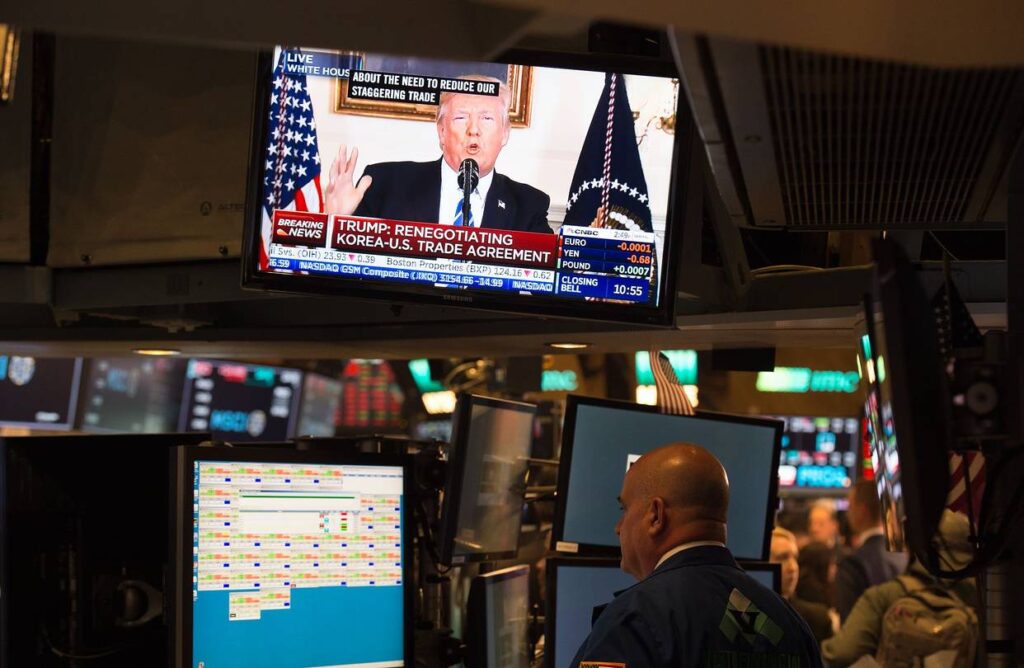The return of Donald Trump to the political landscape comes at a time when the Federal Reserve is pivoting its focus to address changing economic conditions. As the Fed shifts its policy framework to combat persistent inflation while also attempting to support economic growth, the convergence of Trump’s political influence and the Fed’s actions may lead to significant implications for markets, policy, and public sentiment.

Source:- bbc news
Under Chair Jerome Powell, the Fed has been gradually transitioning from aggressive interest rate hikes aimed at quelling inflation to a more balanced approach that includes carefully assessing economic data and adjusting policy accordingly. This recalibration reflects the Fed’s intention to sustain long-term growth without igniting inflationary pressures that could destabilize the economy. However, Trump’s potential policy proposals—such as tax cuts, deregulatory measures, and an emphasis on a strong domestic energy policy—could stimulate demand in ways that challenge the Fed’s efforts to maintain price stability.
Source:- news 18
Trump’s rhetoric often includes criticism of the Federal Reserve’s independence and its monetary policies. In the past, he has advocated for lower interest rates and criticized the Fed’s rate hikes, suggesting that a Trump presidency might increase pressure on the Fed to adopt more growth-oriented policies, even if they conflict with its inflation goals. This political pressure could test the Fed’s independence, an institution historically insulated from direct political influence.
Markets will be closely watching this intersection of Trump’s influence and the Fed’s strategic adjustments, as any shifts in policy direction could have ripple effects across the economy. While the Fed continues to focus on data-driven decision-making, the potential return of Trump introduces a dynamic layer of political pressure that may influence the Fed’s approach to managing economic stability in the coming years.
Share your views in the comments

